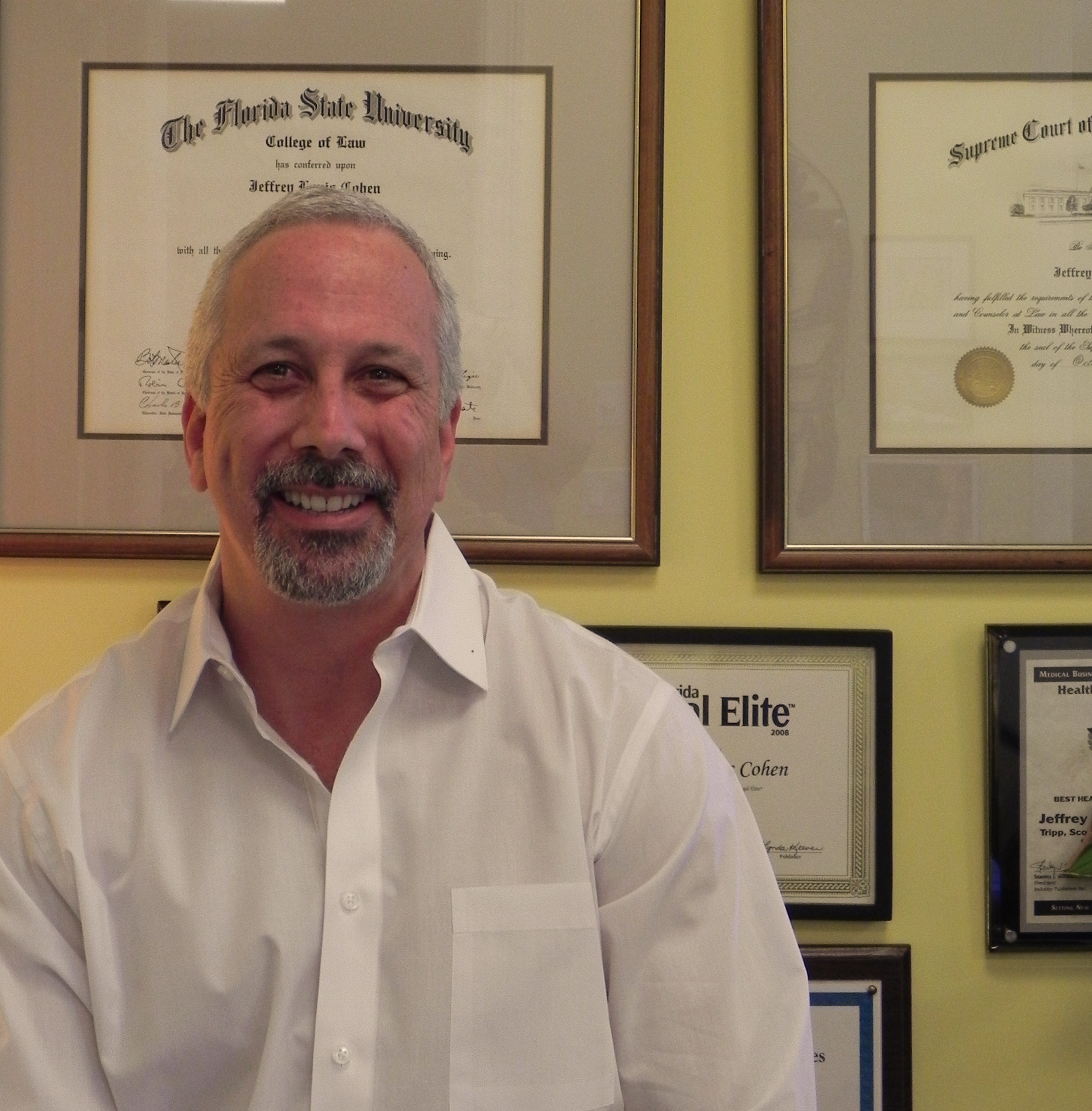The Florida Healthcare Law Firm Announces National Expansion
“We are very excited about it. The fact that we serve clients all over the country has been a small secret for a while but we realized there’s a huge demand and decided to just go for it,” said Jeffrey L. Cohen, Esq. Founder and President of Florida Healthcare Law Firm.
According to Cohen, “It’s just a strange area of the law. Nearly everything in healthcare business is regulated; leases, employment agreements, compensation. Things you wouldn’t think are regulated are strongly regulated. And there are large fines and criminal penalties for getting it wrong! Our clients understand that healthcare business of any kind has serious legal risks and that they need uniquely qualified help.”
To request a service list or for any other firm information, call Autumn Piccolo at 888-455-7702 or visit the firm’s website at www.nationalhealthcarelawfirm.com or www.floridahealthcarelawfirm.com
* * *
Acknowledged throughout the country for its service and excellence, Florida Healthcare Law Firm is one of the nation’s leading providers of healthcare legal services. Founded by Jeffrey L. Cohen, Esq and headquartered in South Florida, FHLF provides legal services to physicians and healthcare businesses with the right pricing responsiveness and ethics. From healthcare clinic regulation, home health agency representation and physician contracting to medical practice formation/representation and federal and state compliance matters, the Florida Healthcare Law Firm is committed to bringing knowledge and experience to a diverse group of clients.
Fraud & Abuse Enforcement Soars Sky High
Investigations and successful prosecutions for violation of laws like the Anti Kickback Statute (“AKS”), the Stark Law and the False Claims Act were dramatically up in 2011 and are expected to climb still higher in 2012. For instance 13 doctors were charged in December, 2011 with violating the AKS by receiving payment for referring patients to an MRI center. Physicians and other healthcare business people MUST have any suspect arrangement closely scrutinized by highly qualified counsel. A “suspect arrangement” is any arrangement between providers of healthcare services that involve, to any degree, the exchange or payment of anything of value, including money. The AKS is a criminal statute; and the risks of enforcement are now huge.
Business and arrangements which are designed at all to lock in physician referrals carry particularly large risks and require close scrutiny. For instance, surgery centers that received referrals from non-owner physicians viewed that as a great thing. Now, referrals from unaffiliated physicians are viewed as inherently suspect. “What,” the regulator thinks, “is driving this referral? What wrongful conduct is being engaged in here?” This is especially so with any marketing arrangement as well.
Physicians and other healthcare business people would do well to recall that if even “one purpose” of the arrangement is to compensate (cash or anything of value) someone for a patient referral, the AKS is triggered. Moreover, where Safe Harbor Act compliance was recommended, many now find it necessary.
Physician Owned Distributorships (PODS) Make Waves
 Physician owned distributorships (PODs) have been the source of considerable controversy for years, but now they’ve caught the attention of Congress!
Physician owned distributorships (PODs) have been the source of considerable controversy for years, but now they’ve caught the attention of Congress!
PODs distribute various things, most commonly surgical implants and devices, that are reimbursed by insurers. A patient needs a spinal rod, a surgical implant/device company makes it and a distributor rep distributed it. Device/implant companies usually contract with distributorships to sell their products. Distributorships contract with reps who are paid commissions for sales. Surgeons who actually order the devices sometimes think “Since I’m the one doing the surgery and ordering all this stuff, why don’t I make something from the selling it?” PODs are one way for physicians to financially benefit from the sales of devices and items their patients need, but they have never been more controversial than now.
Conceptually speaking, PODs are controversial because government regulators think physicians who have an economic stake in health care items or services will tend to over utilize them. Moreover, there is a specific concern that allowing physicians to profit from the devices their patients need violates federal anti kickback laws or the Stark prohibition on compensation arrangements.
In 2006, the Office of the Inspector General of HHS and CMS expressed major concerns about PODs, and cited concerns about “improper inducements.” At that time, the OIG stopped short of prohibiting them, but called for heightened scrutiny. CMS itself has stated that PODs “serve little purpose other than providing physicians the opportunity to earn economic benefits in exchange for nothing more than ordering medical devices or other products that the physician-investors use on their own patients.”
Implantable medical devices are unusual in the way they come into use. Unlike DMEPOS, for instance, medical devices are not sold to distributors. They’re sold from the manufacture to the medical facility where the surgery will take place. So, the argument goes, physicians are not actually in a position to drive the sales volume of the implants. The counter: physicians invested in a POD can leverage their hospital admissions to influence the device choice of hospitals and surgery centers.
The biggest legal hurdle for PODs is the federal Anti Kickback Statute, which carries both criminal and civil penalties. Simply put, if even one purpose of an arrangement is to pay for patient referrals, the law is violated. So, the law is arguably violated if one purpose of the POD is to induce physicians to order implants for their patients. Looked at another way, the law is violated if one purpose of a hospital doing business with a POD is to ensure patient referrals by the physician POD investors.
A 1989 OIG Special Fraud Alert on fraudulent physician joint ventures is especially interesting on the fraud and abuse issues in pointing out that the following would indicate unlawful intent to induce patient referrals—
Investor choice. If the only investors chosen are surgeons with an opportunity to refer and if they lack any business or management expertise, the arrangement appears to be a cloaked way to incentivize unlawful referrals (i.e. ordering implants). The key question is whether the business, in selecting investors, is looking to raise capital or to lock in referral sources.
Risk. If the POD investment involves little or no financial risk, the OIG would likely take issue with it.
The bottom line seems to be that if there isn’t a real business, with real financial risk and qualified investors, a POD will likely be viewed as a suspicious arrangement based on locking in patient referrals or physician admitting pressure by physician investors.
In its June, 2011 Inquiry “Physician Owned Distributors (PODs): Overview of Key Issues and Potential Areas for Congressional Oversight,” the U.S. Senate Finance Committee Minority Staff, the Committee reports “A number of legal and ethical concerns have been identified as a result of this initial inquiry into the POD Models.” The Committee reviewed over 1,000 pages of documents and spoke with over 50 people in preparing its report. The Committee cited long-held concerns regarding PODs, and leaned heavily on the 2006 Hogan Lovells (previously Hogan & Hartson) law firm’s anti-POD analysis.
With the Committee’s call for greater OIG and CMS involvement, one thing seems clear: the future of PODs is uncertain. In this era of cost-cutting, it seems clear that PODs are gonna get a haircut and may even lose their head.
#FHLF October 2011 Newsletter
Click Here to view our October 2011 Newsletter:
http://conta.cc/qFxblP
Consignment Closets: Still a Viable Option for DME Providers
In the age of heightened regulatory scrutiny, physicians and other health care providers often question whether “Consignment Closet” relationships are legal. If properly structured these arrangements are not only legal but are of great benefit to patients needing valuable medical devices. A properly structured relationship will, in all probability, withstand a regulatory challenge by the Office of Inspector General or from other regulatory authorities.Continue reading



